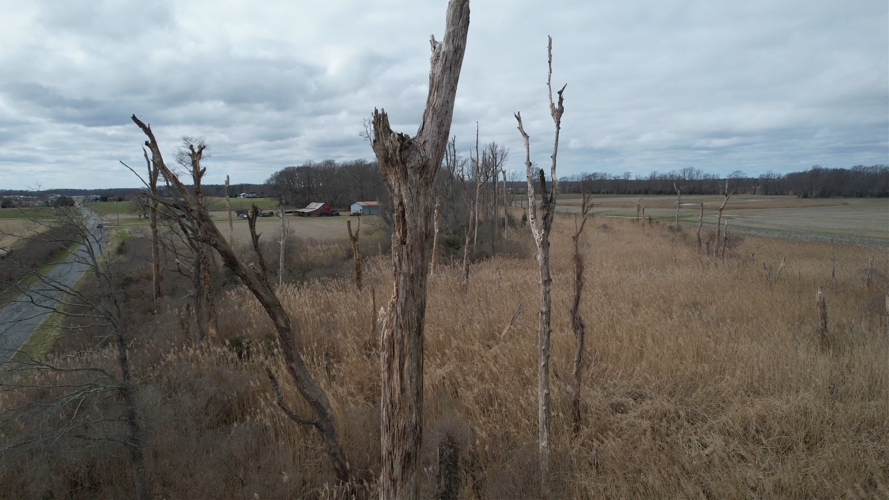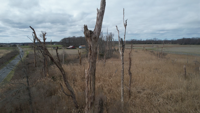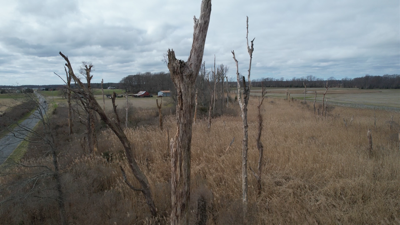DELMARVA - Saltwater intrusion has become an undeniable problem along Delmarva’s coast as climate change has resulted in rising seas. This invasion of saltwater into normally dry land has had massive impacts on farmland, forests, and meadows as this land is transformed into saltwater marshes.
This phenomenon is being studied by a group of scientists from several nearby universities and organizations.
"The slow process is sea level rise which is happening over decades and then fast processes superimposed on that is storm surges, high high tides that tend to move farther and farther inland as sea level rises, and then there are also climatic factors like drought which can allow saltwater to intrude where it wasn't before," explained Dr. Holly Michael, the Delaware Environmental Institute Director.
Sea levels along Delmarva's coastline are rising at one of the fastest rates compared to anywhere else in the world. Recently, we have neared a tipping point where coastal flooding is occurring much more frequently than it has in the past.

Farmland on Delmarva is quickly being transformed. In the period from 2011-2017, over 20,000 acres of farmland had been converted to saltwater marsh, but it isn’t just farmland being impacted.
Coastal forests are also being drastically changed. As saltwater creeps into the ground beneath these forests, the ground becomes saltier and wetter. Many species of trees cannot handle this change in environment. As a result, trees along our coast are dying and leaving behind the remnant trunks of old forests. This dead forest is known as a “ghost forest.”
This saltwater marsh inland movement is not always a bad thing. Rising seas are resulting in marshland losses closer to the water as marshes are converted to open waters. Without the inland movement of these marshes, we would see a decrease in the total acreage of saltwater marshes.
There are times, though, when the inland movement of the saltwater marshes is prevented. This occurs when farmers try to fight back the loss of farmland or neighborhoods and development prevent the movement of the marsh. That is when problems can arise from habitat loss and loss of coastal protection from future storms.
Tomorrow at 5pm at the Lewes Public Library, a viewing of the award-winning documentary “Salted Earth” will be shown.
"The film tells the story both of the science that we are doing around marsh migration along the coast and the story of the marsh migration itself, as well as how it affects the coastal communities surrounding it," explained Michael.
Following the showing, there will be a panel discussion and Q&A with experts from the University of Delaware and the University of Maryland Eastern Shore about the work being done to protect and improve our coastal lands.









